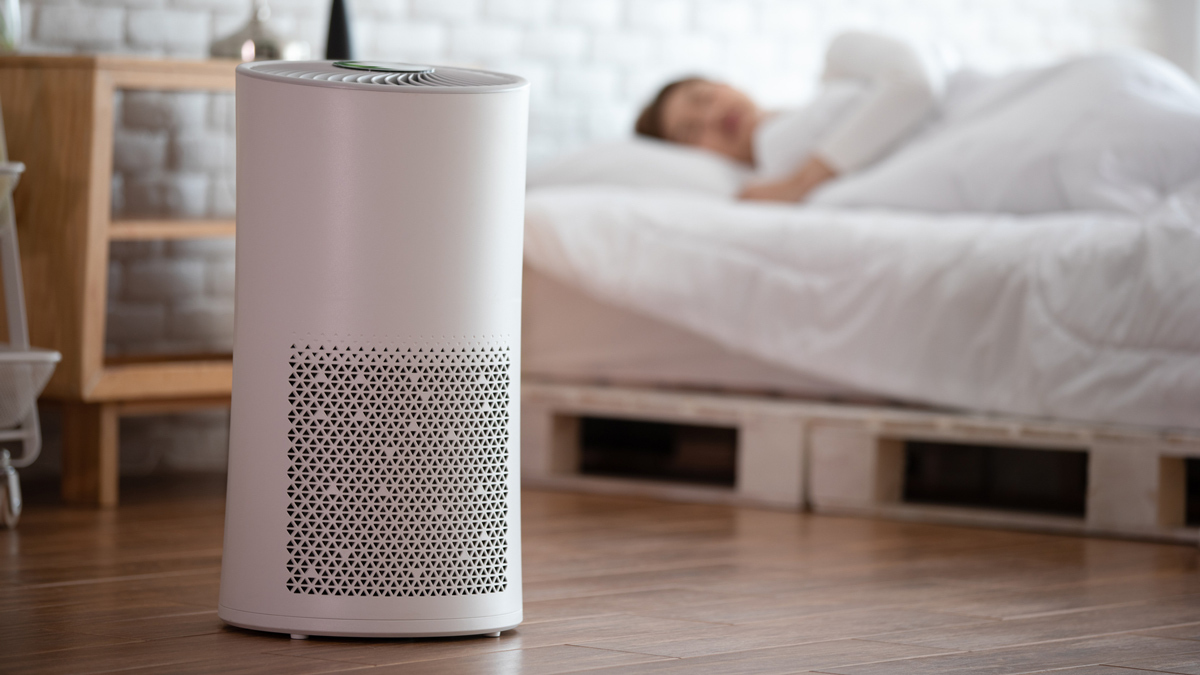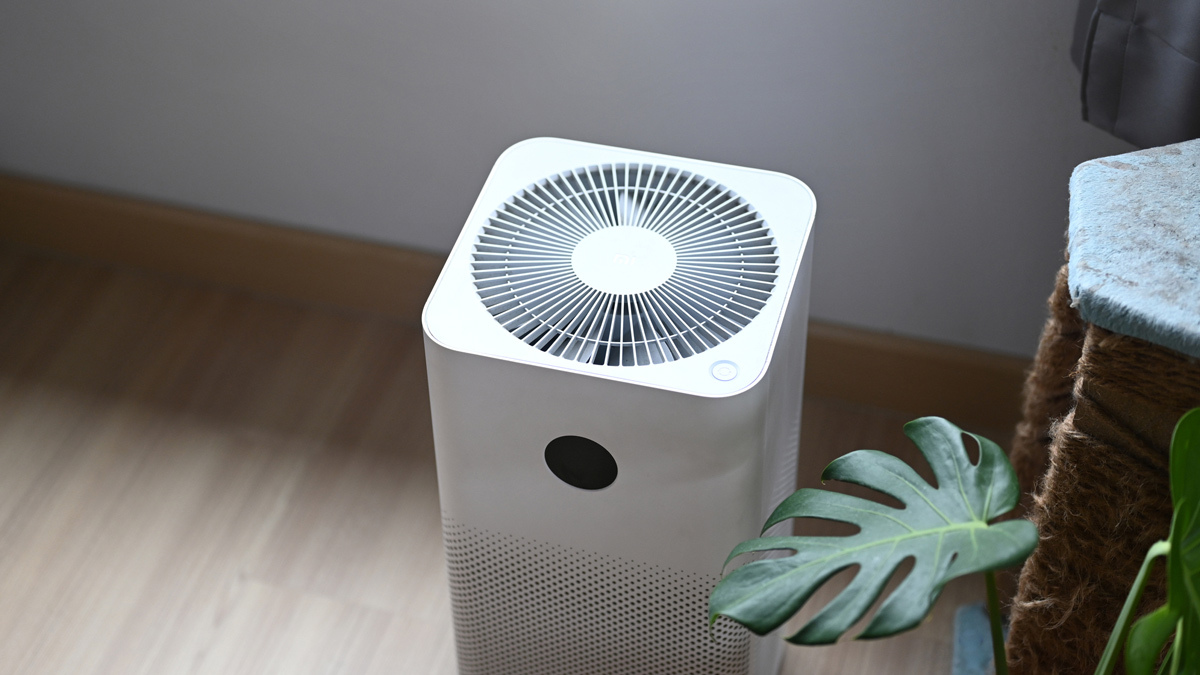Featured
Table of Contents
- – Comprehending Allergic Reactions and Triggers
- – Can Air Purifiers Aid with Allergies?
- – The Scientific Research Behind Air Purifiers ...
- – Are Air Purifiers Right for You? Factors to C...
- – Taking advantage of Air Purifiers for Allergies
- – Beyond Air Purifiers: A Multi-Pronged Techniqu...
- – Living a Breath Easier Life with Allergies

For allergy sufferers, spring blossoms and cosy animals can bring more sniffles and sneezes than delight. Indoor irritants like allergen, pet dog dander, and pollen can ruin your respiratory system, leaving you feeling unpleasant. Air purifiers are often promoted as an option, appealing cleaner air and alleviation from allergic reaction signs. However are air cleansers really worth the investment for allergy victims? This thorough guide checks out the scientific research behind air cleansers, their performance for allergies, and the factors to take into consideration when making a choice.
Comprehending Allergic Reactions and Triggers
To understand the duty of air cleansers, allow's initial look into allergic reactions and their triggers:
- The Allergic Reaction: Allergies happen when your body immune system panics to a safe substance, like plant pollen or allergen. This response triggers the launch of histamines, causing allergy symptoms like sneezing, coughing, itchy eyes, and a runny nose.
- Common Irritants: Indoor irritants consist of dirt termites, family pet dander, mold spores, pollen that wanders indoors, and even cockroach allergens. These airborne bits can irritate your respiratory tracts and set off allergy signs and symptoms.
Can Air Purifiers Aid with Allergies?
Air purifiers function by attracting air, straining toxins, and releasing cleaner air back into the room. Below's how they can potentially profit allergic reaction sufferers:
- Trapping Allergens: HEPA (High-Efficiency Particulate Air) filters, a typical type used in air cleansers, are extremely effective at capturing airborne allergens like dust mites, pet dog dander, and plant pollen. By removing these triggers from the air you take a breath, air purifiers can assist reduce allergic reaction signs and symptoms.
- Improved Air Top Quality: Air cleansers can likewise get rid of other irritants from the air, such as smoke, dirt, and unstable natural substances (VOCs) This overall improvement in air top quality can be beneficial for allergy patients that are sensitive to these added triggers.
The Scientific Research Behind Air Purifiers and Allergies
Researches have actually revealed that air cleansers can be helpful in minimizing allergic reaction signs and symptoms. Here's a check out some essential study searchings for:
- A 2019 testimonial released in the journal "Existing Allergic reaction and Bronchial asthma Reports" wrapped up that air cleansers with HEPA filters can be efficient in reducing allergic reaction signs and symptoms and boosting lifestyle for individuals with hay fever (hay fever)
- A 2018 research published in the journal "Record of Allergy, Bronchial Asthma & Immunology" located that using an air purifier with a HEPA filter in the room dramatically reduced allergen irritant levels and enhanced sleep quality in individuals with bronchial asthma.
Nevertheless, it is very important to keep in mind that research study also recommends some limitations:
- Air Purifier Coverage: Air purifiers are most efficient in the space where they are put. Their impact on irritants in other components of your home may be marginal.
- Intensity of Allergies: While air cleansers can help, they could not be a total solution for severe allergic reactions. Drugs and other allergy management methods could still be needed.
Are Air Purifiers Right for You? Factors to Consider
Below are some key elements to consider when deciding if an air purifier deserves it for your allergies:
- Severity of Allergies: If your allergies are mild and well-controlled with medicine, an air purifier may not be essential. Nonetheless, for those with modest to severe allergic reactions, an air purifier can be a valuable device in taking care of signs.
- Types of Irritants: Take into consideration the major triggers for your allergies. Air cleansers are most reliable for airborne irritants like dirt mites, family pet dander, and pollen. They may not be as handy for irritants like mold that grow on surface areas.
- Way of living and Atmosphere: If you have pet dogs, stay in an area with high pollen counts, or have issues concerning indoor air top quality, an air purifier can be beneficial.

Taking advantage of Air Purifiers for Allergies
If you choose to buy an air purifier for allergic reactions, right here are some tips for maximizing its performance:
- Pick a HEPA Filter: Seek an air purifier with a HEPA filter accredited to capture fragments as tiny as 0.3 microns.
- Right Size for the Area: Make certain the air purifier has a Clean Air Delivery Price (CADR) that appropriates for the dimension of the room you prepare to utilize it in.
- Positioning Matters: Place the air purifier in the room where you invest the most time, such as your bedroom.
- Normal Filter Maintenance: Replace HEPA filters according to the maker's guidelines to preserve ideal performance.
- Integrate with Other Strategies: Air purifiers are not a one-size-fits-all option. Incorporate them with various other allergic reaction monitoring approaches like medicine, routine cleaning, and allergen-proof bed linen.
Beyond Air Purifiers: A Multi-Pronged Technique to Allergy Management

While air cleansers can be a beneficial tool in your allergic reaction collection, they are not a miracle drug (If you're looking to buy an Air Purifier then Air Cleaners Australia is the best destination.). A comprehensive approach that incorporates air purification with various other approaches is essential to achieving lasting allergy relief. Right here are some extra methods to take into consideration:
- Medication: Antihistamines, decongestants, and nasal corticosteroids, prescribed by your medical professional, can effectively handle allergic reaction symptoms.
- Allergic Reaction Testing and Immunotherapy: Identifying your certain irritants via allergy testing can lead the way for immunotherapy, a treatment that aids desensitize your immune system to irritants gradually.
- Air Top Quality Monitoring: Routine cleaning with a HEPA-filtered vacuum and allergen-specific cleansing products can substantially minimize allergen, animal dander, and various other allergens in your house.
- Controlling Humidity: Mold grows in moist atmospheres. Making use of a dehumidifier can help control humidity degrees and stop mold development, an usual indoor irritant.
- Way of living Adjustments: If you have hatreds pollen, remaining inside throughout optimal pollen seasons and showering after hanging out outdoors can assist minimize direct exposure.
- Bed linens and Surface Areas: Framing cushions and mattresses in allergen-proof covers can dramatically lower dust mite direct exposure. On a regular basis washing bedding in hot water helps eliminate allergens.
Living a Breath Easier Life with Allergies
Bear in mind, taking care of allergic reactions is a constant process. By understanding your triggers, applying a multi-pronged method, and possibly including an air purifier right into your approach, you can dramatically lower allergy signs and breathe less complicated.
Additional Considerations:
- Consulting a Medical professional: If your allergic reactions are serious or not well-controlled with medicine and lifestyle adjustments, speak with a specialist for tailored suggestions.
- Air High Quality Tracking: Take into consideration utilizing an air quality monitor to track allergen degrees in your home and change your monitoring methods appropriately.
- Long-Term Financial investment: A top quality air purifier can be a lasting investment in your health and well-being.
By taking a proactive approach and adopting a mix of these strategies, you can develop a much healthier and allergy-friendly environment, enabling you to enjoy a breath much easier life.
Table of Contents
- – Comprehending Allergic Reactions and Triggers
- – Can Air Purifiers Aid with Allergies?
- – The Scientific Research Behind Air Purifiers ...
- – Are Air Purifiers Right for You? Factors to C...
- – Taking advantage of Air Purifiers for Allergies
- – Beyond Air Purifiers: A Multi-Pronged Techniqu...
- – Living a Breath Easier Life with Allergies
Latest Posts
About Can Your Yeti Rambler Handle The Dishwasher's Heat?
Are Air Purifiers Well Worth It for Allergies? Breathing Easier with Science-Backed Solutions
Excitement About Are Yeti Rambler Tumblers Built For Dishwasher Durability?
More
Latest Posts
About Can Your Yeti Rambler Handle The Dishwasher's Heat?
Are Air Purifiers Well Worth It for Allergies? Breathing Easier with Science-Backed Solutions
Excitement About Are Yeti Rambler Tumblers Built For Dishwasher Durability?